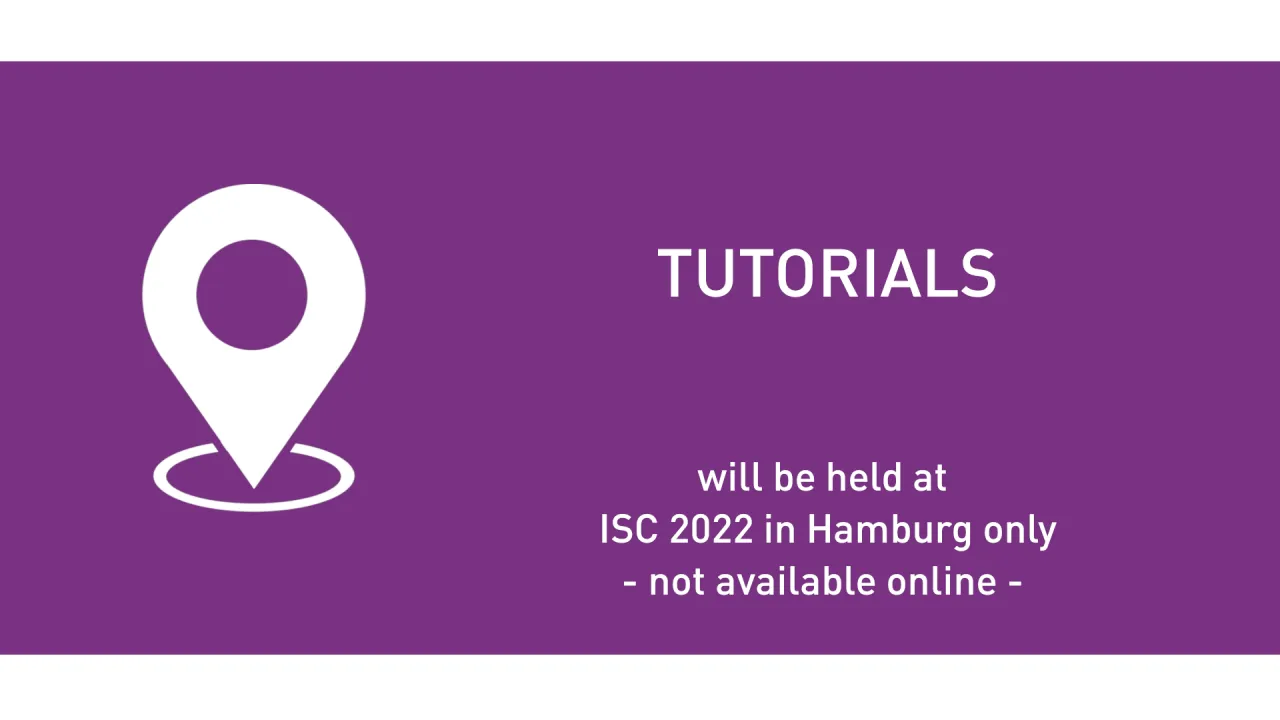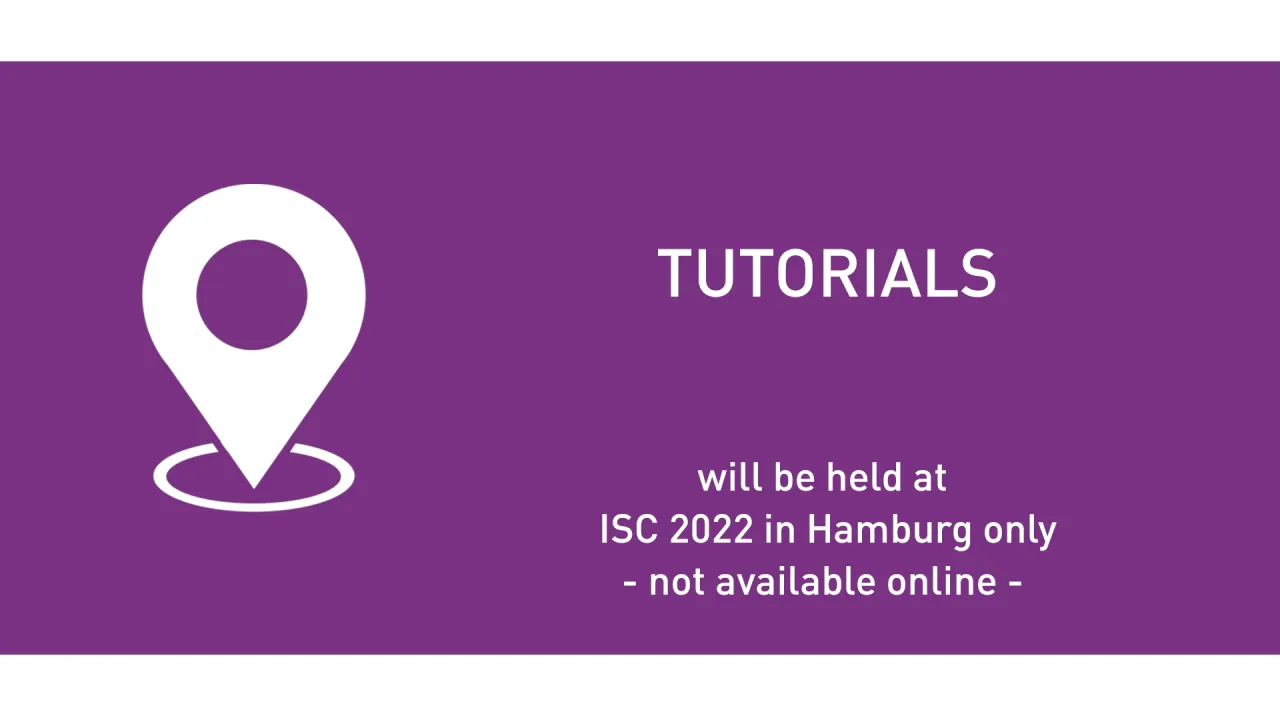

Maintaining a Modern Scientific Software Stack Made Easy with EasyBuild
Sunday, May 29, 2022 2:00 PM to 6:00 PM · 3 hr. 59 min. (Europe/Berlin)
Hall Y2 - 2nd Floor
HPC Workflows
Information
Installing scientific software for supercomputers is known to be a tedious and time-consuming task. Increasing HPC user community diversity, as well as hardware complexity, continues to deepen the application software stack. Delivering optimised software installations and providing access to these installations in a reliable, user-friendly way is a highly non-trivial task that affects the application developer, the HPC user support teams, and the users themselves.
This tutorial aims to address this issue, providing the attendees with the knowledge to install and manage software in a clean and reproducible way. For this, the tutorial introduces EasyBuild, a software build and installation framework implemented in Python. It supports implementing (complex) installation procedures concisely, and is able to fully autonomously perform optimised software installations. EasyBuild is available under the open source GPLv2 license, has a thriving community, and supports more than 2,500 different (scientific) software packages. It is well inte- grated with different implementations of environment modules (Lmod, Tcl, C) to generate module files automatically and present them in a consistent way.
We cover the installation and configuration of EasyBuild, the basic usage, installing already supported software, adding support for additional software, and highlight some more advanced features. In addition, we will show how to engage with the community and contribute to the project, and how EasyBuild is used and integrated on large-scale HPC systems at the Jülich Supercomputing Centre and in LUMI, one of the EuroHPC JU pre-exascale systems, as well as in the European Environment for Scientific Software Instalations (EESSI) project.
Contributors:
This tutorial aims to address this issue, providing the attendees with the knowledge to install and manage software in a clean and reproducible way. For this, the tutorial introduces EasyBuild, a software build and installation framework implemented in Python. It supports implementing (complex) installation procedures concisely, and is able to fully autonomously perform optimised software installations. EasyBuild is available under the open source GPLv2 license, has a thriving community, and supports more than 2,500 different (scientific) software packages. It is well inte- grated with different implementations of environment modules (Lmod, Tcl, C) to generate module files automatically and present them in a consistent way.
We cover the installation and configuration of EasyBuild, the basic usage, installing already supported software, adding support for additional software, and highlight some more advanced features. In addition, we will show how to engage with the community and contribute to the project, and how EasyBuild is used and integrated on large-scale HPC systems at the Jülich Supercomputing Centre and in LUMI, one of the EuroHPC JU pre-exascale systems, as well as in the European Environment for Scientific Software Instalations (EESSI) project.
Contributors:
- Alan O'Cais (Centre Europ ́een de Calcul Atomique et Mol ́eculaire (CECAM))
- Kurt Lust (University of Antwerp)
- Sebastian Achilles (Jülich Supercomputing Centre)
- Kenneth Hoste (Ghent University)
Format
On-site


